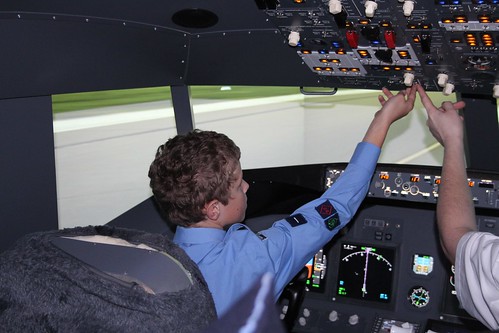Many pilots have jobs that let them travel the world and take advantage of great perks. Before you can get a job as an airline pilot, though, you may need to take these six steps. They should qualify you to work at the top of your field.
1. Get a Medical Certificate
For safety reasons, pilots must be in good health before they can operate aircraft. While students can start their training before getting certified by a doctor, it’s best to get a medical certificate first. By doing so, you can find any health concerns that may prevent you from becoming a pilot before you spend a lot of time and money on training.
Not all medical conditions will prevent you from becoming a pilot. Getting a full medical checkup will identify any concerns that you may need to address before becoming a pilot. According to the FAA, disqualifying medical conditions include:
- bipolar disorder
- heart disease
- epilepsy
- substance abuse
2. Get Experience as Early as Possible
The FAA requires all commercial airline pilots to have at least 1,500 hours of experience. That will obviously take several years of practice. Aspiring pilots should start putting in their time as early as possible. The FAA requires student pilots to be at least 16 years old. Learning at that age could give you a head start in the industry.
3. Get Experience in a Flight Simulator

Image via Flickr by Australian Air League
Learning with a flight instructor is a reliable way to gain real-world experience. There are some situations, however, that you will need to master in a flight simulator. It’s dangerous to fly in harsh weather conditions, so students usually get training in simulators that give them the opportunity to learn from their mistakes.
Some schools have flight simulators that students can use to gain experience. Look for high school and college programs in your area that can give you access to a flight simulator. Depending on where you live, you may have several options.
4. Earn a College Degree
You don’t necessarily need a college degree to become a pilot, but most airlines will only hire pilots who have completed, at minimum, an undergraduate program. Aspiring pilots should consider enrolling in bachelor of science programs that let them study subjects such as aviation, aeronautics, and engineering.
The courses you take and the grades you earn may influence whether a major airline chooses to hire you. Buckle down and earn a relevant degree to improve your chances.
5. Get Even More Experience
The FAA may require at least 1,500 hours of flight time before you get licensed, but many airlines have tougher requirements. You may need as many as 3,000 hours in the air before you can become a captain.
Many people get this experience by working for companies that are not airlines. Large shipping companies, for instance, may hire beginning pilots who need to log more hours before they can work in the airline industry. UPS, FedEx, and similar companies can give you experience working with large cargo planes.
Joining the military is another popular option. Pilots who take this route often get experience flying a wide range of aircraft. They also get paid for their training. The Air Force, Navy, Army, and Coast Guard all have pilot training programs.
6. Apply for Entry Positions With Airlines
Most airlines have unions. That’s good for employees who want union representation. It’s not great for pilots who want to progress through the ranks quickly. Unions typically require airlines to promote pilots according to seniority. If you have just become a pilot, it could take one to five years before you get to work as a first officer.
It can take up to an additional ten years before you get promoted from first officer to captain. This, of course, depends on union contract details. Some airlines may require fewer or more years of service before they can promote pilots.
There are many job opportunities for licensed pilots. Those who want to work for major airlines may want to follow these steps to make themselves more employable. What other career options should aspiring pilots consider?

